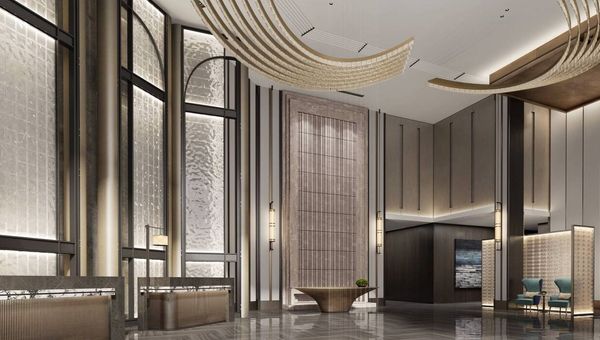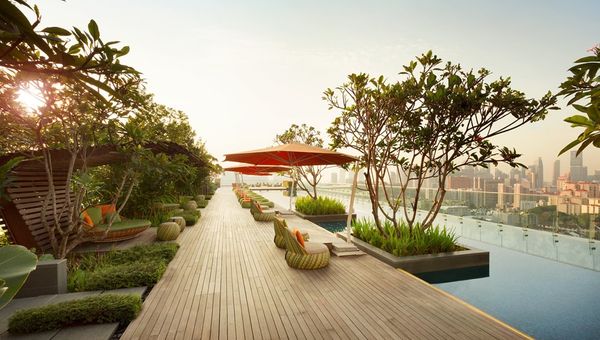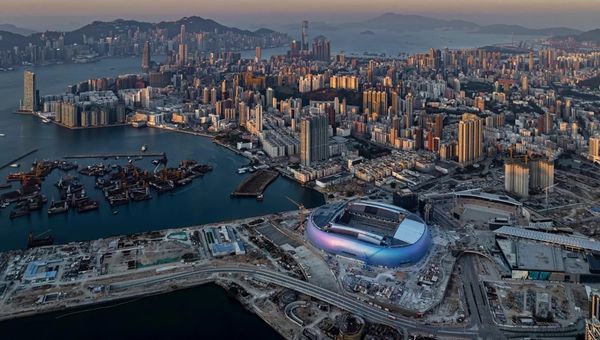Hong Kong’s hotel sector remains in recovery mode from the tumultuous
events of recent years, but tourist numbers have rebounded
significantly since travel restrictions were fully dropped over one year
ago.
Visitor arrivals (80% from mainland China) in February 2024 increased
173% over 2023 to top four million, while Lunar New Year arrivals for
the first four days totalled 750,000, exceeding 2018 levels.
Rebounding arrivals drove hotel occupancy to 82.5% in 2023 and
continue to trend up, with average daily rates climbing to HK$1,392
(US$178); HK$2,347 at the upper end of market and higher at the luxury
tier.
New hotel supply falls short
The question for Hong Kong is whether the city has enough rooms in
respond to ongoing competition and shifts in consumer behaviour.
“The pipeline is virtually non-existent,” Swire Hotels managing
director Dean Winter told the HICAP Update conference in Hong Kong on 14
March 2024.
As of July 2023, Hong Kong was home to 319 hotels and 89,292 rooms,
according to the Home Affairs Department’s Office of the Licensing
Authority. Of the 48 operators with licenses pending, the majority are
small guesthouses opening in existing buildings.
“Hong Kong is under-supplied in new hotels, which is odd considering
all the major brands’ Asia flagships are in Hong Kong,” Tasos
Kousloglou, CEO of hotels at Sun Hung Kai Properties, added.

The 373-room Dorsett Kai Tak Kowloon Hotel is set to open in the emerging district, formerly home to Kai Tak Airport.
As of the beginning of 2024, just a handful of significant openings
were expected in the immediate term: lifestyle brand Motto by Hilton;
the boutique brand Kimpton under IHG brand; the trendy
neighbourhood-focused Urbanwood in Hung Hom, its second location after
Ap Lei Chau; the 373-room Dorsett Kai Tak Kowloon Hotel in the emerging
district once known for being home to Kai Tak Airport; and the planned
hotel inside Hopewell Centre II, a conference hotel with 1,000 guest
rooms, a retail podium, and green park. The art-forward 324-room
Mondrian, the brand’s first in Greater China, opened at the very end of
2023.
Diverse hotel offerings emerge
The Federation of Hong Kong Hotel Owners estimates hotels will total
328 and 91,227 keys by the end of 2024, representing “a good variety of
hotel selections – luxury, business, theme park hotel, cultural, and
green. We can accommodate the diverse needs of tourists,” said a
Federation spokesperson.
The most significant trends emerging are for authentic travel
experiences, events and more affordable accommodations, including the
rising need for business travel on a budget. Chic, well-located brands
with limited services and better rates – the Shangri-La’s Hotel Jen, and
Urbanwood – are gaining traction.

Stylish and conveniently situated brands offering limited services and competitive rates, such as Shangri-La's Hotel Jen, are becoming increasingly popular.
“Hong Kong has become expensive, and that’s good for the industry
after decades of looking at occupancy as the measure of success. Rates
came second,” said Winter. “The last year has taught us that resources
are short, and in this context it’s better to drive rate, which can be
just as profitable, though it’s less advantageous for consumers.”
With airlift still under pressure, Hong Kong is not currently a value
option for the long-haul leisure market, which includes Australia,
Europe and North America.
In line with experiential travel, culturally specific options, such
as renovated heritage buildings (like the Tai O Heritage Hotel), hotels
with heightened F&B offerings and comprehensive wellness services
have become an essential part of hotel offerings.
Mega-events and growth prospects
Also hampering Hong Kong hotels’ full recovery to their regional best
93% occupancy of past years is the lack of mega-events. “The lack of
events is another source of tension,” said Winter. “We need those red
dates.”
The new Dorsett will be a few minutes away from the forthcoming Kai
Tak Sports Park, a massive 28-hectare redevelopment that will boast the
city’s new 50,000-seat multi-function stadium. It’s expected to be the
new home of the Hong Kong Sevens rugby tournament and major
international sporting events and concerts among others.

The upcoming Kai Tak Sports Park will feature Hong Kong’s new 50,000-seat multi-function stadium.
However, upcoming mega-events and proximity to the Greater Bay Area
are expected to buoy Hong Kong’s hospitality sector in the coming years.
“The high-speed rail and the bridge that connect to Zhuhai and Macao,
improving air capacity, new attractions in the pipeline at West Kowloon
Cultural District and World of Frozen for family visitors [will support
the hotel sector], but the game-changer for business events and general
tourism is the Greater Bay Area opportunity,” Kenneth Wong, general
manager for MICE & Cruise and regional director for the Hong Kong
Tourism Board told the HICAP audience. “It will be a strong source
market for hotels, and a very strong itinerary for visitors.”